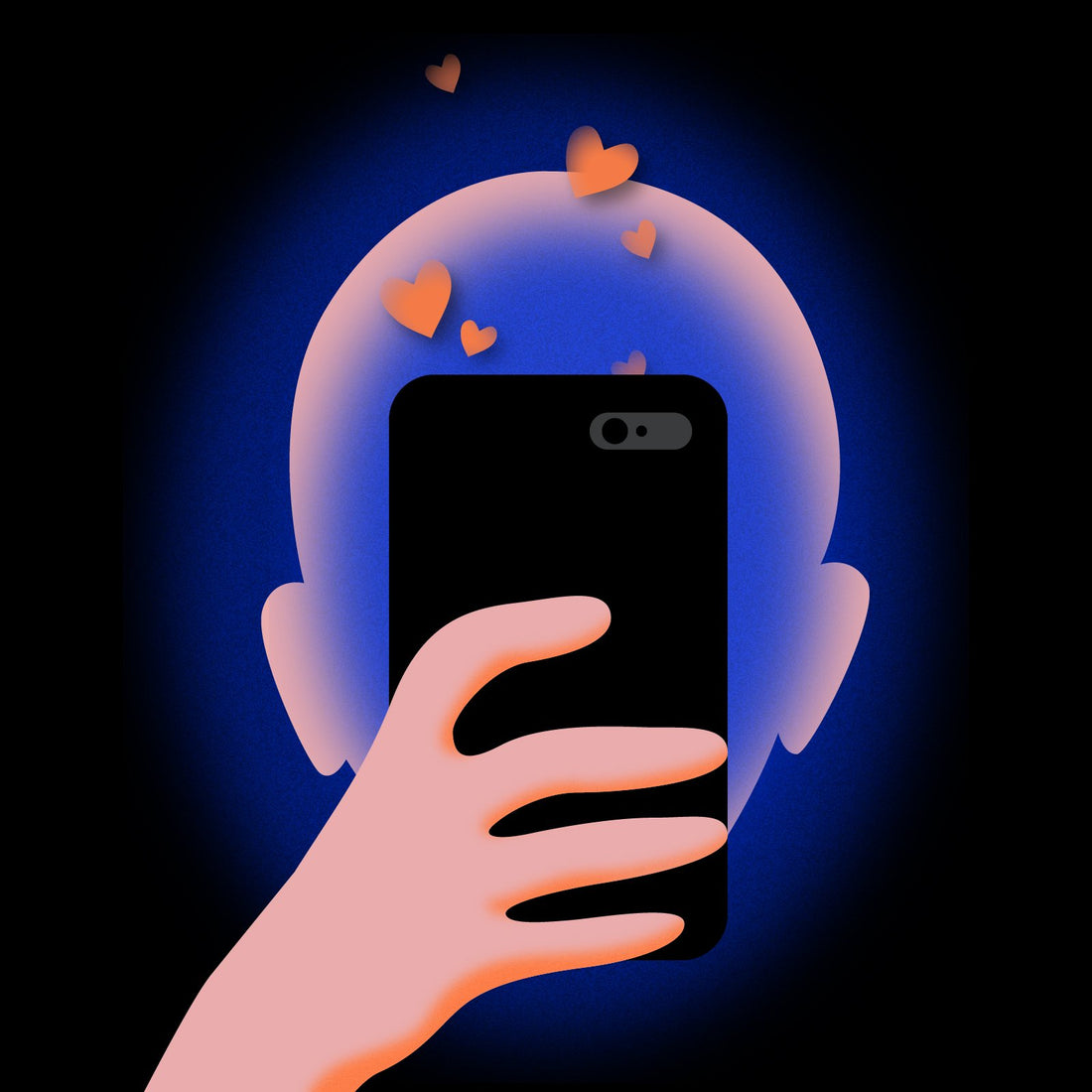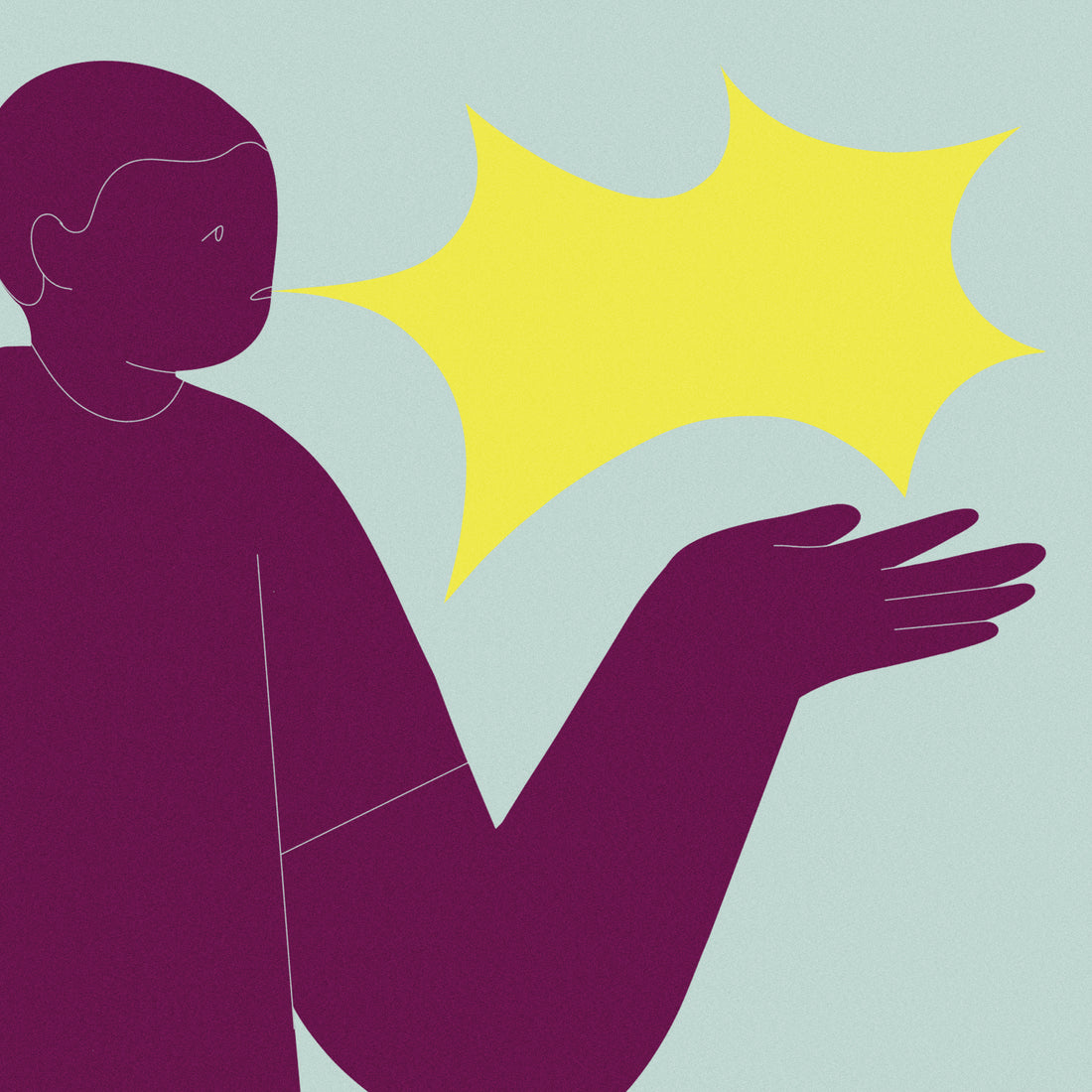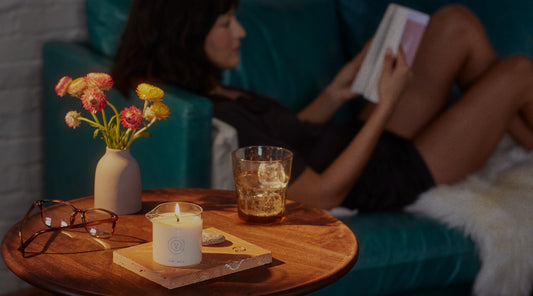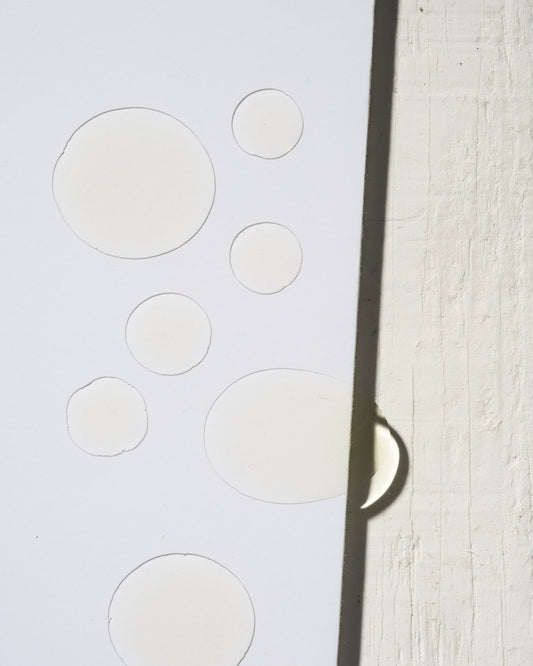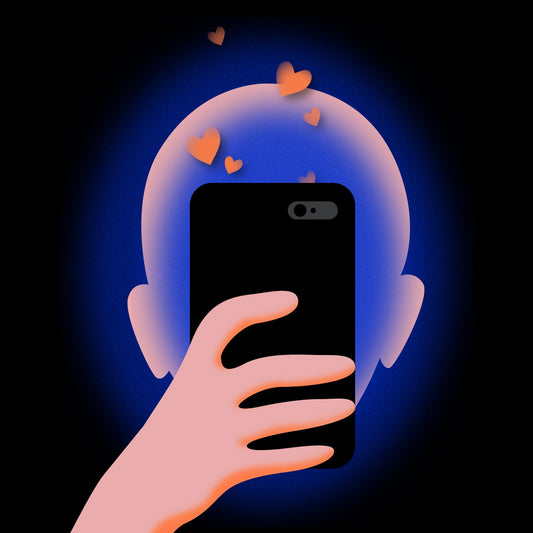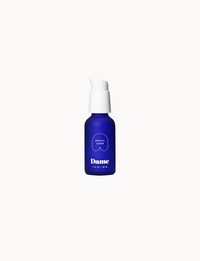Anxiety can strike like a flighty and chaotic energy trapped in the body. And sometimes it lies in wait, slowly sprouting roots in the pit of your stomach. It’s an experience that feels like our mind and body are being hijacked.
Life is already full of complexities and responsibilities, so processing our anxiety can feel like a luxury we simply can’t afford.
Be it a conscious or unconscious choice, masking our anxiety can feel like the logical one to endure the day. However, these bottled up emotions and not-so-helpful coping strategies can have a real impact on your life.
Here are 5 signs that you may be masking anxiety:
Self Medicating
We can feel stuck in a state of overwhelm when we 1) don’t understand what we’re feeling, and 2) don’t possess the tools to soothe ourselves. Without healthy strategies, we’re more likely to create or find our own coping strategies.
One such strategy is self medicating, which is using a substance to dull anxiety and feel safe in the mind and body. Dulling just makes it easier to compartmentalize or dismiss our discomfort. It can also insulate us from the pressures of social anxiety. We can self medicate using anything from coffee, nicotine, alcohol, drugs, binge eating, bingeing tv, online shopping, etc.
Self medicating can only create a temporary feeling of safety and calm. Chasing this illusion of control actually exacerbates our anxiety symptoms. In the long-run, it can lead to an addiction of a substance.
Can you soothe yourself into a state of calm without dulling your senses? Or do you feel you need regular support from a substance to soothe intense emotions or sensations?
Habits / Rituals
Habits and rituals can be a healthy way to take control of our lives. When anxiety takes over it’s a normal reaction to grasp for anything we can feel in control of. But habits and rituals that take a turn toward the obsessive usually mask a deeper issue.
Obsessing over habits and rituals is a strategy to pull focus toward an object(s) or pattern(s) of behavior that creates an illusion of control. Compulsively soothing our anxiety using a habit or ritual can lead to psychological dependence. It can become incredibly difficult to soothe ourselves when the habit or ritual can’t be performed.
Anxious habits and rituals can look like nail biting, hair twirling, hair pulling, compulsive grooming, compulsive cleaning, etc. These acts can be merely compulsive or self-destructive in nature. And they can come to influence our mood, decisions, and life.
Is there a habit or ritual that you believe you can’t put off or say “no” to? Do you feel overwhelmed or out of control if you’re prevented from performing the habit or ritual?
Codependency
We all need a strong support system to navigate the highs and lows of life. When anxious feelings stir, we may be masking them if the support we seek tilts toward the compulsive. And if our boundaries crumble then we’ve veered straight to codependency.
Codependency is a strategy that uses relationships with others to distract us from the discomfort of anxious thoughts, feelings, and sensations. We negotiate—or downright sacrifice—our boundaries to keep an ongoing connection with a person. This connection is a distraction that creates a temporary relief. But once there’s a break in the connection that pesky anxiety can’t be masked.
Experiencing discomfort from anxiety is scary! But codependency requires losing our sense of identity to mask this discomfort. Being codependent means we’re afraid to say “no.” And that fear leads us to put others’ needs before our own.
Do you struggle to communicate “no” and other boundaries within your relationships? Do you consistently put the needs of others ahead of your own?
Criticism
Criticism can be constructive or destructive depending on how you wield it. When that anxious, out of control feeling surfaces, it’s hard to resist fixating on what’s difficult, scary, or wrong. Fixating can transform those heavy emotions into more destructive stuff.
Criticism is a strategy that habitually finds fault within the individual, or in another person, as a way to control anxious thoughts and emotions. By funneling uncomfortable emotions into criticisms we can avoid learning what those uncomfortable emotions are trying to tell us.
It’s an emotionally cutting experience because criticism usually connotes deeper questions of a person’s character. Its destructive nature eats away at our self-esteem and the trust in our relationships.
In the midst of experiencing intense emotions or stressful situations, what do you notice about your inner dialogue? Is it kind and supportive? Is it mean and relentless?
Big Reactions
At some point we all will put our best foot forward and still face failure and rejection. How we choose to react matters, however, anxiety can quickly ignite an outburst. If we meet every inevitable let down with a big reaction then we’re being invited to examine what’s brimming beneath
Big reactions are a strategy to relieve the pressure of concealing anxiety using perfectionism. Perfectionism is a need to be perceived a certain way in relationships and situations. This perfect image is designed to make us feel safe and accepted in a given dynamic.
The moment we’re perceived—or believe ourselves to be perceived—as having fault or failing, a big reaction erupts. Our perfectly crafted image can no longer mask or manage the anxiety underneath.
Do you find yourself fixating on how others judge your behaviors? Do you worry if pieces of our identity scare people or opportunities away?
If you believe you struggle with anxiety support is within reach!
A therapist can guide you through somatic work and teach you healthier strategies to soothe your anxiety. Group support is an invaluable opportunity to connect with and learn from others who empathize with your experience.
You can also work with your anxiety by identifying one masking strategy and replacing it with a healthier strategy. Once you’ve mastered that healthier strategy, address the next masking strategy.
There’s no shame in getting curious about our anxiety. In fact, it’s quite the courageous act.

